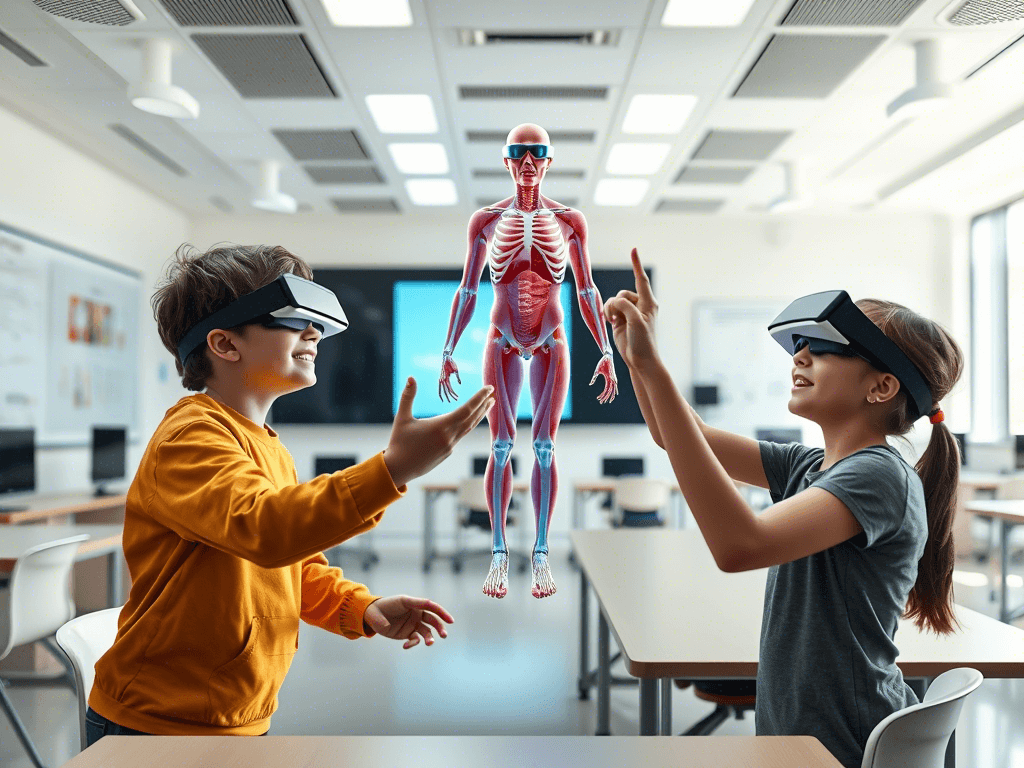[ad_1]
Artificial Intelligence (AI) has transcended the realms of theoretical possibility and, in many ways, has become an integral part of our daily existence. As we stand on the precipice of a new era, AI is not just a technological advancement but a transformative force that is redefining how we live, work, and interact with the world around us. This article explores the future of AI and its profound impact on everyday life, highlighting the advancements in various sectors and the potential challenges and ethical considerations that accompany this revolution.
The Ubiquity of Smart Machines
From virtual assistants like Siri and Alexa to more sophisticated applications in healthcare, finance, and transportation, smart machines are becoming ubiquitous. These systems leverage vast amounts of data and advanced algorithms to perform tasks that were once relegated to human intelligence. As AI technology continues to evolve, we can expect even greater integration into our daily routines.
1. Healthcare Revolution
One of the sectors experiencing the most significant transformation due to AI is healthcare. Advanced algorithms are being used to analyze medical images, detect anomalies, and even assist in complex surgical procedures. By harnessing the power of machine learning, healthcare providers can offer personalized treatment plans based on genetic data and lifestyle factors.
Moreover, AI-driven predictive analytics can enhance disease prevention efforts. For instance, wearable health devices that monitor vital signs can alert users and healthcare professionals to potential health issues before they become critical.
2. Smart Homes and Everyday Convenience
The concept of the smart home is no longer a futuristic dream but a present-day reality. Devices such as smart thermostats, security cameras, and refrigerators equipped with AI capabilities enable homeowners to optimize energy consumption, enhance security, and streamline grocery shopping. Voice-activated assistants can control these devices, allowing users to manage their homes with simple commands.
Furthermore, AI-driven apps can help users plan their meals, manage household chores, and even create shopping lists based on their dietary preferences, drastically improving the quality of life and freeing up precious time.
3. AI in Transportation
Autonomous vehicles are one of the most exciting developments in the realm of AI. Companies like Tesla, Waymo, and others are pioneering innovations in self-driving technology, promising to reshape how we commute. With AI enabling advanced navigation systems and real-time traffic management, we can expect safer and more efficient transportation options.
Additionally, public transportation is becoming smarter, with AI optimizing routes and schedules based on real-time demand, thereby improving accessibility and user experience.
4. Education and Learning
AI is revolutionizing education by offering personalized learning experiences tailored to individual student needs. Intelligent tutoring systems can assess a student’s strengths and weaknesses, providing customized resources and feedback. This fosters a more engaging learning environment while allowing teachers to focus on fostering creativity and critical thinking.
Furthermore, online platforms are evolving with AI algorithms that suggest courses and learning materials based on a learner’s previous interactions, making education more accessible and tailored than ever before.
Challenges and Ethical Considerations
While the benefits of AI are undeniable, they come with their own set of challenges and ethical considerations that must be addressed. One significant concern is the potential for job displacement as AI systems become capable of performing tasks traditionally done by humans. It is paramount to create strategies that facilitate workforce transitions and reskilling opportunities in the wake of automation.
Additionally, data privacy and security remain critical issues. As AI systems rely on vast amounts of personal data, ensuring that this information is protected against breaches and misuse is essential. Ethical frameworks governing AI use must be developed to mitigate biases that may arise from algorithms trained on non-representative data sets.
Lastly, as AI systems gain more autonomy, the question of accountability becomes urgent. Establishing clear guidelines and regulations around AI deployment is essential to prevent misuse and ensure that technology serves the public good.
Conclusion
The future of AI holds immense promise, with smart machines poised to revolutionize our daily lives in ways we are only beginning to understand. As we embrace these technological advancements, it is essential to remain vigilant about the ethical implications and challenges that accompany them. By fostering innovation alongside responsible governance, we can harness the full potential of AI to create a better, more efficient, and inclusive world. The journey ahead is filled with possibilities, and together, we can shape a future where AI enhances the human experience rather than detracts from it.
[ad_2]


